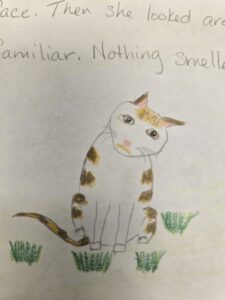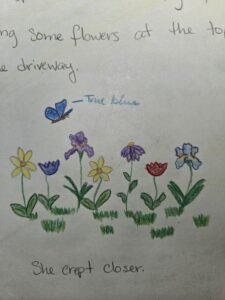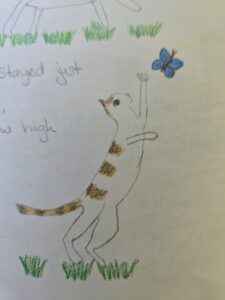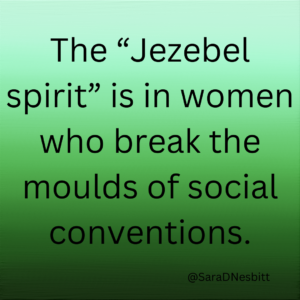I’m still in a state of shock and a whisper of denial that Donald Trump will be our president again. A demented, incompetent, unintelligent, unserious, thirty-four count convicted felonious, weird old man beat a vibrant, brilliant, joyful, experienced, accomplished biracial woman. And there you have it. Between an old White man who lies with every breath and has nothing but gripes and promises of retribution–not to mention, “concepts of a plan”–on one side, and a younger woman of color with solid policies and a vision of unity and opportunity that encompasses all Americans, people let their misygnoir show in full color.
So what are we going to do with this? We’ve heard the plans, and they are scary, especially for those of us who have studied history. How do we stay true to who we are and the principles we believe in while also not bowing to what for all practical purposes will be a fascist regime?
We resist. We stay true to who we are. We remember the lessons of history. Do you know who was responsible for the rise of the Third Reich? Adolf Hitler. Know who was responsible for the fall of the Third Reich? Adolf Hitler. Malignant narcissists are their own downfall. So it was true in the 1940s, so it’ll be true eighty years later.
In the meantime, though, we’ve gotta prepare for chaos, mess, a whole shitstorm. At this point, I’m saying, If you chose not to vote for Kamala Harris, then you chose the consequences of the Trump win. Maybe your own misogyny and racism kept you from voting for “the Black woman.” Maybe you voted third party or just abstained because of situations in the Middle East–a “protest vote.” Now you’re finding out what the consequences of your vote will be. Those who did vote for Harris knew the consequences ahead of time; it’s just too damn bad we have to suffer them with you.
Enough with my rant. Back to resistance.
We often think of “resistance” as in La Resistance, the underground French resistance movement that operated in Nazi=occupied France in the early Forties. We may think of brave Germans like Oskar Schindler and Polish humanitarian Irena Sendler who helped save the lives of hundreds of Jewish people and children. But every day Germans resisted in little ways, too. A loved one was a little girl in Germany when the Nazis came to power. The Reich demanded that musicians give up their instruments so the metal could be repurposed for artillery. This little girl’s dad was a musician with a friend who had a hiding place in his attic. The dad smuggled his instrument to his friend’s house, successfully preventing the Nazis from getting it. (That little girl grew up to meet and marry an American soldier.)
We can resist in little ways, too. Once we have felt all the feels and worked through our grief to the point where we can function, we then raise our heads up and look around us. We see our families, our friends, our communities. We can look for the helpers and those we need to help. We will strengthen our roots from the bottom–our local spaces, communities, and neighborhoods–not from the top.
We then own our voices. We have the constitutional right to petition our government on our own behalf. We can sign actual petitions and we can contact our representatives in Congress. Whether or not they’re of our party, we can still hound them with letters, calls, and emails to encourage–nay, insist–their standing up for our democracy and the rights of all their constituents.
We gotta take care of ourselves, too. We have bodies we must be sure to keep strong. Eat right and exercise. Catch up on your boosters while you still can. Make sure your collection of Covid masks is clean and handy. I have a feeling we’ll need them before this craziness is all over. Get sleep; sleep keeps us functioning and sharp. Tend to your mind. A great therapist is a blessing, but only if you show up for sessions. Know that you’re not alone.
Finally, we resist by planning. We are very likely heading from a time of prosperity to a recession. Avian flu is making the prices of eggs and chicken fluctuate. Now it’s looking like the virus has mutated and jumped to farm animals, most notably cows. That will affect the price of beef and dairy. This might be a good time to adopt some vegetarian recipes into your life. We eat mostly vegetarian already so this won’t be a big adjustment for us.
Plan a victory garden (because we will be victorious). If you live in a condo or apartment, you can do this in containers. Think about what will grow where you live that you eat a lot of and plant that. Tomatoes are a good grower here. I’m not sure what else we’ll be planting in the spring. We will likely have some crops on rotation; we only have four beds. I’m not seeing the likelihood of flowers this year, though I’m planning on some herbs.
Write. Draw. Create. Can you imagine the vast compendium of art and stories we’ll have if everyone created from our hearts and minds? Maybe you’re a songwriter. Maybe you’re a poet. Perhaps you paint. Whatever your form, create. The stories will be here for generations to come and will keep this phase of American history from disappearing.
We will get through this. It’s not going to be easy; nothing worth doing ever is. Make sure you tell the people you love how much you love them, and look after your neighbors. And yourself.

Please follow and like us:






